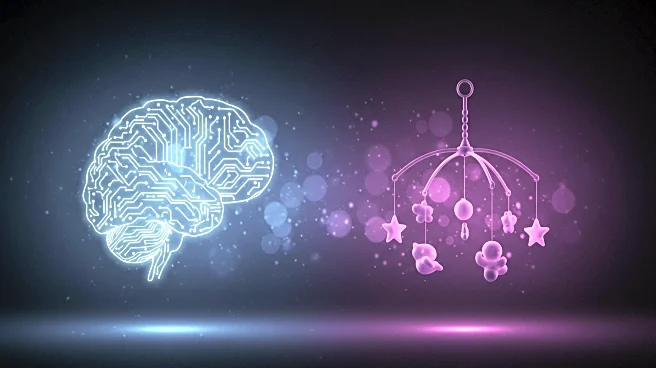What's Happening?
Elon Musk has made a provocative statement regarding artificial intelligence, suggesting that AI will significantly affect the human limbic system, which is responsible for emotions. Musk's comments were made on the social media platform X, formerly known as Twitter. He further speculated that AI could paradoxically lead to an increase in birth rates, although he did not provide a detailed explanation for this prediction. Musk's remarks come amidst growing societal reliance on AI-driven chatbots, which are increasingly used for personal and emotional interactions. This trend reflects a broader societal shift towards digital solutions in the face of economic and social challenges.
Why It's Important?
Musk's comments highlight ongoing debates about the role of AI in society, particularly its potential to influence human behavior and social dynamics. The suggestion that AI could affect birth rates touches on complex issues of economic and social policy, as birth rates are influenced by a variety of factors including economic stability and cultural norms. If AI were to impact these areas, it could have significant implications for demographic trends and economic planning. Additionally, the increasing use of AI in personal interactions raises questions about privacy, mental health, and the nature of human relationships in a digital age.
What's Next?
The future implications of AI on human emotions and societal trends remain uncertain. Stakeholders, including policymakers, tech companies, and social scientists, may need to consider regulatory frameworks and ethical guidelines to address potential impacts. Public discourse on the role of AI in society is likely to continue, with potential calls for more research into its effects on human behavior and social structures.
Beyond the Headlines
The ethical implications of AI's influence on human emotions and societal trends are profound. As AI becomes more integrated into daily life, questions about consent, autonomy, and the nature of human interaction will become increasingly relevant. The potential for AI to shape societal norms and behaviors could lead to long-term cultural shifts, necessitating careful consideration of its role in shaping future societies.










